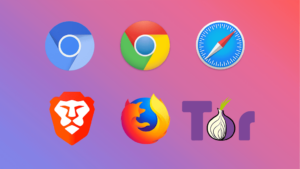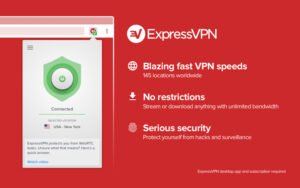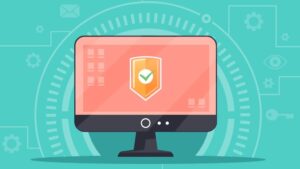Is there anything like a hundred percent secure browser? Your gateway to the World Wide Web is via your browser, which is also an entry point into your network and devices. If your browser is not very secure, then hackers will have a field day accessing your system and steal your financial and other data. Cybercriminals get bolder by the day and use more advanced techniques to secure data. A secure browser needs o to defend your system against a wide range of privacy and security threats, which include:
- Malicious web content
- Phishing
- Tracking
The most secure web browsers
The nine most highly ranked web browsers include:
1. Tor Browser
2. Firefox
3. Brave
4. Chromium
5. Apple Safari
6. Google Chrome
7. Opera
8. Microsoft Edge
9. Internet Explorer
How to secure your browser
If your browser is not secure enough, there are ways you can secure it and ensure hackers cannot steal your data.
1. Install a VPN
A Virtual Private Network (VPN) is one way to secure your browser. A VPN creates a secure connection between your device and the internet. It masks your IP address and hides your location, as well as encrypting all your data.
Ensure a secure connection with a VPN to thwart any attempts by cybercriminals to steal your data. If you use public Wi-Fi, you should be aware of the dangers. Most hackers sniff packets on public networks and steal data from unsecured browsers.
A good VPN encrypts data using Advanced Encryption Standard (AES) with 256-bit keys, also referred to as AES-256. The U.S government and other security experts encrypt classified data using this encryption standard. This standard makes it impossible for hackers to access the information, and even if they did, impossible to decrypt it.
2. Keep the browser updated
Browser updates are released frequently to plug any recent security loopholes discovered by developers. Make sure your browser is updated to the current version and you update the automatic updates. Do not risk by using a web browser that is already outdated such as Microsoft’s Internet Explorer or Apple’s Safari for Windows. Use Mozilla Firefox or Google Chrome and enable automatic updates. Use a newer version of Internet Explorer on a current version of Windows and then go ahead and use Microsoft Edge on Windows 10 or install Windows updates.
3. Configure your browsers security and privacy settings
Review your preferred browser’s security and privacy settings to ensure you have checked and unchecked the correct settings. For instance, confirm if your browser is set to block third-party cookies, which enable you to be tracked by advertisers using your online habits.
4. Enable click-to-play plugins
When you enable click-to-play plugins, web pages will load faster, saving you battery power and CPU cycles. When pages load faster, it becomes harder for a hacker to exploit the flaws in the browser background. This is because you only allow the plugin loading to occur when you need it.
5. Uninstall unnecessary plugins
To secure your browser, uninstall the plugins you do not need. Go to the list of installed plugins and proceed to uninstall the unnecessary plugins. Java is not used by many websites and you should install it unless you need it. Silverlight from Microsoft is no longer useful for Netflix. Uninstall all unnecessary plugins and if you need them down the road, you can always re-install them. Ensure all your plugins update automatically and regularly.
6. Install one anti-virus program
Update the anti-virus program and run a periodical system scan. It is important to note that you only need to install one anti-virus program because if you run two programs simultaneously, they might conflict and end up rendering each other ineffective. Ensure your anti-virus
contains one anti-malware or anti-spyware as well to prevent conflict.
7. Activate firewalls
A firewall is designed to thwart unauthorized entry from or to a private network. Firewalls prevent hackers from gaining access to private networks that have access to the internet (intranets). Any communication that enters or leaves the intranets passes via the firewall, which scrutinizes each message and blocks any communication that does not pass the security check criterion. The most critical aspect of a firewall is the access control features that allow it to tell apart good and malicious traffic.
8. Delete spam mail
One of the easiest ways hackers get into systems is via phishing scams, which use email attachments. Delete emails from unknown sources, or if the email seems to come from a legitimate source, do not open the email. A hacker may pretend to be your bank and email you with an attachment or link.
Once you open the attachment or link, you will be redirected to a fake website belonging to the hackers. The site will proceed to ask you to input your login details and password, which the hackers mine, and use later to steal your data. Get a good spam filter, which filters all your emails and prevents spam mail containing malware and viruses from reaching your inbox.
9. Avoid using external storage media
Avoid using storage media such as flash drives that do not belong to you. Using someone else’s storage media may inject malware into your system. Malware such as ransomware, which takes your entire system hostage or a virus that, destroys all your data can be easily added to your system via an external storage media.
In 2016, an experiment at the University of Illinois proved that most people have no compunctions about using strange flash drives. The researchers left almost 300 USB flash drives with no markings lying in and around the campus to record people’s reactions to the drives. At least 98% of the unmarked USB drives were plugged in to access the contents. If a hacker had been behind the drives, then the hacker would have had an easy time infiltrating the university students’ networks.
10. Be wary of using browser extensions
Browser extensions are extremely powerful in customization of your browser and the web but are also a potential danger. A rogue extension might inject ads into your favorite web pages, track all your online activities, capture your keystrokes, etc.
Strive to use very few browser extensions as is humanly possible, which will also make your browser faster and more effective. Evaluate all extensions as you would evaluate the software for your computer. Extensions can be malicious, especially with third-party extensions originating from third-party websites. Sometimes, this malicious malware can sneak its way past security into official markets such as Google Play.
Conclusion
The internet plays a huge role in our everyday lives, and we can do all manner of things such as online shopping and banking. Hackers are always out to steal our data. If you are not careful, the possibility of hackers stealing all your data, and wiping your bank accounts clean is very real. Securing your browser is crucial to prevent data loss from hacking and
malware attacks.
The above tips, if followed, will ensure your browser stays protected. The type of browser you use matters as well and some browsers are better protected than others are. Avoiding browser extensions is highly recommended, as some malware can sneak past security and pose as legitimate extensions.



